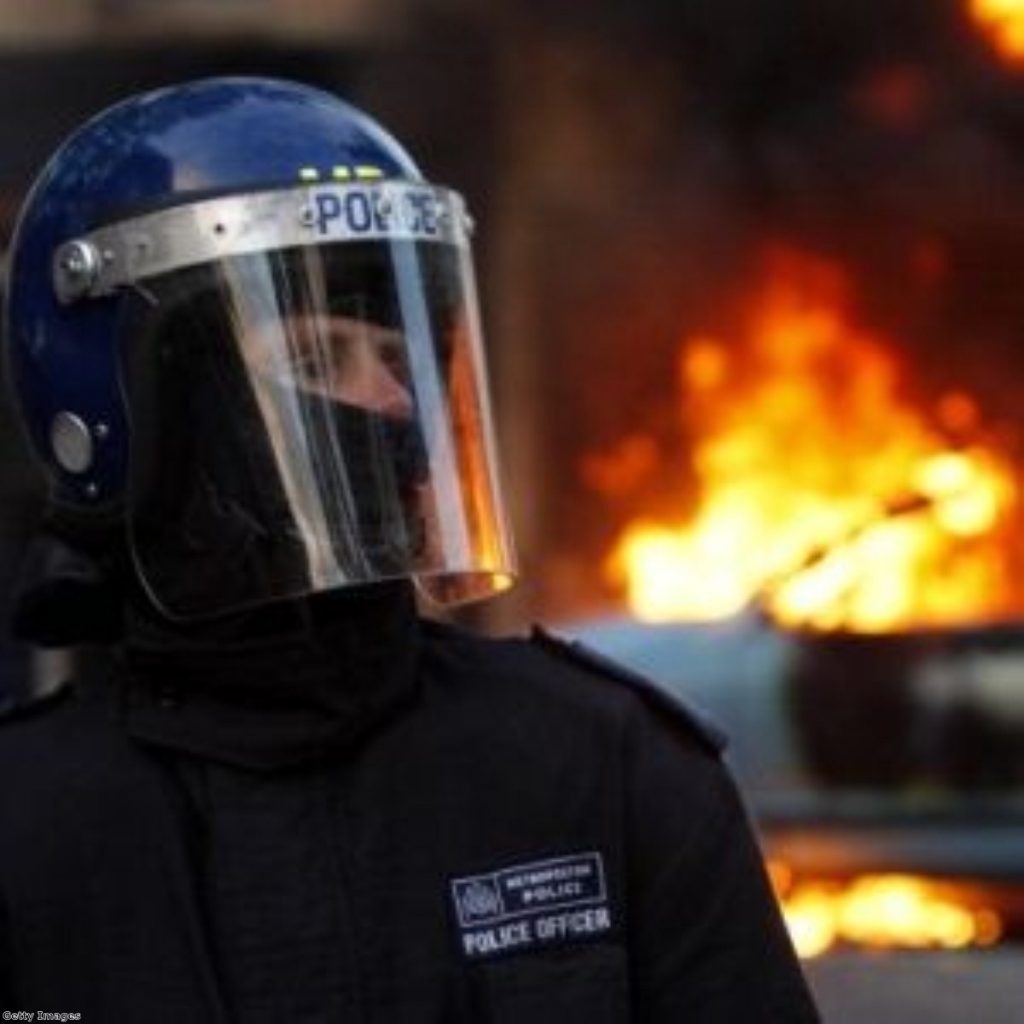Comment: The Met police cannot be trusted with more weapons
The revelations over the Stephen Lawrence case are just the latest in a seemingly endless series of scandals overtaking the Metropolitan Police.
In recent years the force has been accused of spying, taking bribes, brutalising protesters, framing a Cabinet minister, killing an unarmed newspaper seller, covering up phone-hacking and allowing a small scale riot to spread right across the UK.
Any ordinary organisation facing these kinds of accusations would at the very least enter a period of restraint and self-reflection.
But the Met is no ordinary organisation.


In fact, rather than hold back, the Metropolitan police now want to be trusted with ever greater weapons to use against the British public.
London's mayor Boris Johnson, once a self-described champion of public freedom, has been brow-beaten into backing these demands.
Johnson is now leading police calls to introduce water cannon onto London's streets, saying that it is time to "get medieval" on rioters. These weapons, which have previously caused horrific injuries to protesters, have never been seen in the UK outside of the militarised streets of Northern Ireland.
Many people wrongly assume they are benign tools designed to soak rioters. This is wrong. Water cannon jets are capable of knocking the air out of protesters and causing grievous injuries in the worst cases. They are an extreme and indiscriminate assault on the right to protest.
They are also just the beginning of a wider militarisation of the Metropolitan police.
As I revealed last week, the Met is currently under pressure from Conservative politicians to introduce a new "sound cannon" onto the streets of London.
These weapons, capable of firing harmful, pain-inducing sounds at crowds, have been used to squash anti-government protests in Turkey and were reportedly held in reserve by the British army during the 2012 Olympics. The Met police have been considering their use since at least 2007.
Asked last week whether he would support their introduction, Met commissioner Bernard Hogan-Howe’s only objection was that people may be able to avoid them by wearing ear-protectors. Boris Johnson, who was sat beside him, remained silent.
Inevitably it doesn't stop there. The Met is currently developing weapons capable of firing 'discriminating irritant projectiles' at protesters.
According to Home Office documents, these weapons will be capable of delivering a "discrete, localised cloud or burst of sensory irritant in the immediate proximity of an individual aggressor".
These irritants would include CS gas or pepper spray as well as a newly developed formula known as "skunk oil".
Under Met proposals, pellets of the extremely foul-smelling formula would be fired at crowds, forcing people to leave the area in disgust.
And these are just the new weapons being considered. The police already have a vast array of options available to them, including baton rounds and tasers, which have been rolled out across the country despite many questions about their safety.
Taken individually, each of these measures can be defended, but when taken together they represent a comprehensive attempt to delegitimise the right to protest.
The first step in delegitimising protest is to control the sort of people who take part in them.
By threatening crowds with high-powered jets, chemical attacks and deafening sounds, huge numbers of people risk being discouraged from taking part in future protests.
Protests that might otherwise have been filled with families and vulnerable people would be reduced to a hardcore of unrepresentative protesters.
And once that was achieved, it would only make it easier for the police to call for even greater powers to control them.
British policing is founded on Robert Peel's principles of policing by consent. These principles were designed to ensure that police officers remain as 'citizens in uniform', tasked with protecting and not fighting the public.
The militarisation of the police would tear up this principle once and for all.
Of course the Metropolitan police insists it has absolutely no intention of doing so. But after the events of recent years, only a fool would take that promise at face value.









